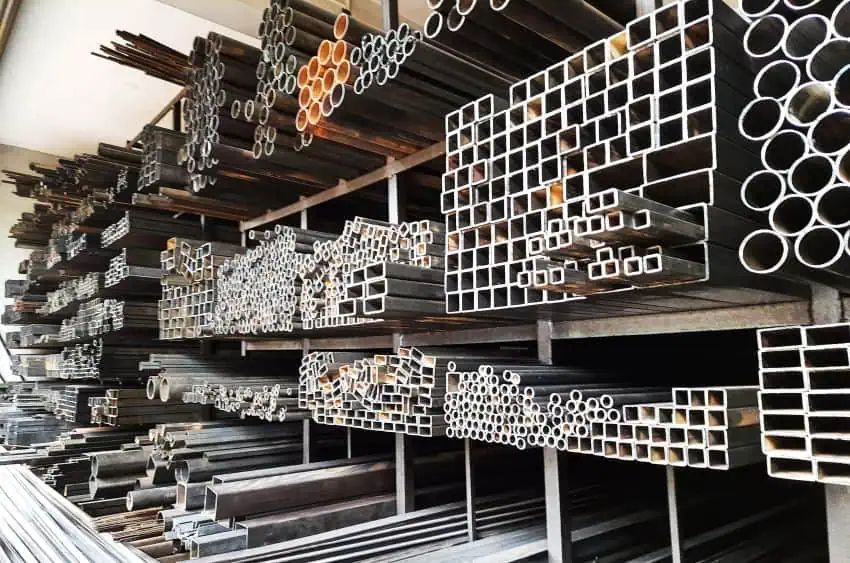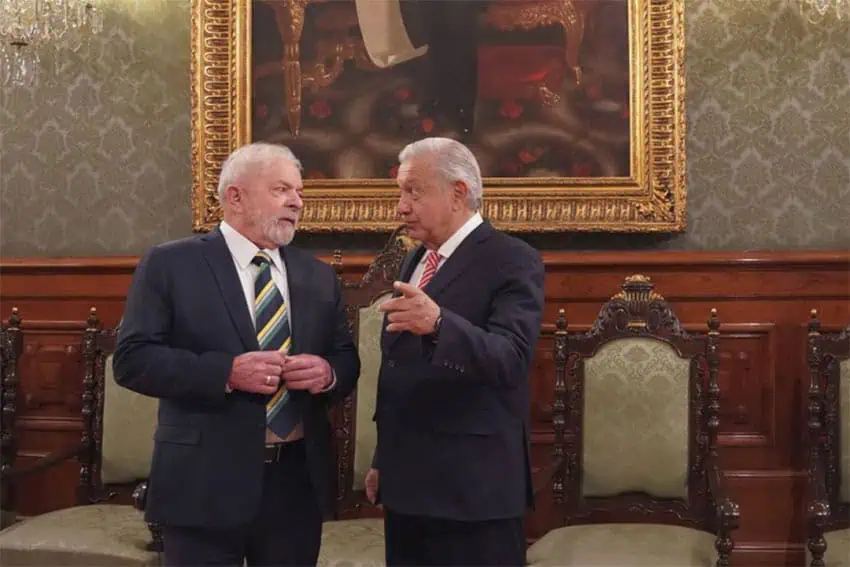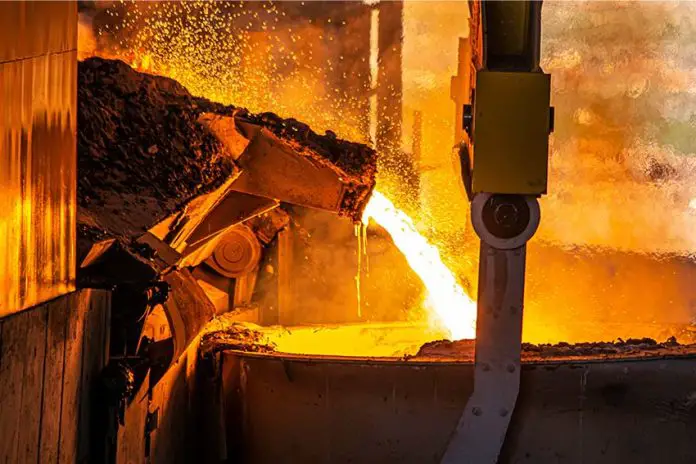The United States and Mexico have announced a series of steps aimed at curbing the circumvention of U.S. tariffs on steel and aluminum — particularly targeting products from China shipped through Mexico.
The measures — which also seek to strengthen steel and aluminum trade between Mexico and the U.S. — were announced on Wednesday. They include a new North American “melted and poured” standard for steel.

Under the new policy, steel product imports from Mexico will be subject to 25% tariffs under Section 232 of the U.S. Trade Expansion Act — unless the steel is documented to have been melted and poured in Mexico, the U.S. or Canada, who are the members of the USMCA trade pact.
Section 232 of the 1962 Trade Expansion Act authorizes the president to adjust tariffs on imports when the circumstances surrounding those imports are deemed to threaten national security.
For aluminum imports, in order to escape a 10% tariff, the product must not contain primary aluminum that was smelted or cast in China, Russia, Belarus or Iran. U.S. importers of steel and aluminum will be required to provide certificates of analysis to U.S. Customs and Border Protection, verifying the country of origin for those metals.
Also, Mexico has agreed to require companies that import steel into Mexico to provide more information on the metal’s country of origin.
“Both countries will implement policies to jointly prevent tariff evasion on steel and aluminum and strengthen North American steel and aluminum supply chains,” said a joint statement from U.S. President Joe Biden and Mexican President Andrés Manuel López Obrador.
The new import requirements are part of a broader effort to address concerns about China’s excess industrial capacity flooding global markets, which has led to increased U.S. tariffs on various goods from China.

U.S. officials have expressed concerns that Mexico could serve as a back door for tariff-evading Chinese products into the U.S. market, taking advantage of Mexico’s duty-free access through the U.S.-Mexico-Canada Agreement (USMCA) trade pact.
In April, Reuters reported that U.S. officials had warned Mexico against offering incentives to Chinese electric vehicle manufacturers looking to establish factories in Mexico.
U.S. Trade Representative Katherine Tai said that the new action “addresses a gap that the previous administration and its isolated trade policies left unaddressed.”
According to a Ministry of Foreign Affairs statement titled “Mexico works to strengthen the national steel industry,” the measures include an agreement with the U.S. “to design a mechanism so that Brazilian steel processed in Mexico is not subject to tariffs.”
“We have a very good relationship with Brazil,” López Obrador said in his Thursday morning press conference, “and it was agreed that Brazil will have special treatment in the case of imports of steel from Brazil to Mexico, and of steel and aluminum that may have components originating in Brazil.”
Despite the small volume of steel imports into the U.S. from Mexico that originated elsewhere — only about 13% of the 3.8 million tonnes imported in 2023 — U.S. officials said the new measures will prevent a potential surge in imports from China, where domestic demand remains weak.
The American Iron and Steel Institute praised the new measures while also emphasizing the need for Mexico to provide accurate information on its metal imports to ensure effective enforcement.
López Obrador expressed support for the agreement and emphasized its benefits for Mexico.
“This should also be considered in the medium and long term, so that investment [continues to be] made in Mexico,” López Obrador said.
With reports from El Economista, La Jornada and Reuters
